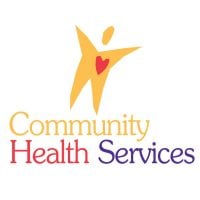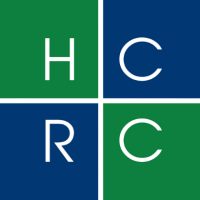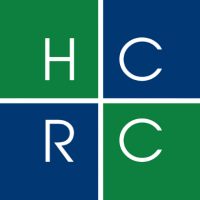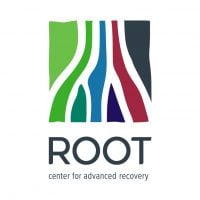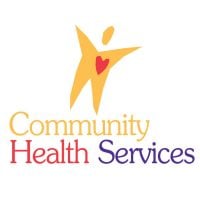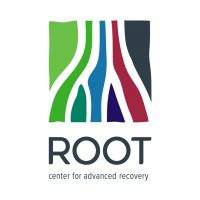ADRC Residential Program/Intermediate
Drug Rehab Center in Hartford, Connecticut
ADRC Residential Program/Intermediate in Hartford, Connecticut offers specialized care for opioid addiction, substance abuse, and drug addiction, providing comprehensive and personalized treatment options including aftercare support, rehab, residential care, and various therapies to help individuals build a foundation in sobriety.
Multiple patients have reported ADRC Residential Program/Intermediate as permanently closed.
Research other rehabs in Hartford, Connecticut, or get help finding an open facility.
About This Connecticut Facility
ADRC Residential Program/Intermediate is an addiction treatment facility in Hartford, Connecticut that offers specialized care to those suffering from opioid addiction, substance abuse, and drug addiction. This top-notch facility focuses on compassionate care for each person and offers an array of care options such as aftercare support, drug rehab, and different levels of residential care. ADRC Residential Program/Intermediate is accredited and licensed and is able to accept most private health insurance plans.
ADRC Residential Program/Intermediate offers a comprehensive program for those struggling with opioid addiction, substance abuse, and drug addiction. The facility provides personalized care for each individual and focuses on helping them build a strong foundation in sobriety. Patients can access ongoing and follow-up care, including individual and group therapies, relapse prevention services, medication management, and other holistic therapies. ADRC Residential Program/Intermediate provides quality care and meets all of the state of Connecticut's standards and regulations for addiction treatment facilities.
Genders
Ages
Modality
Additional
Conditions and Issues Treated
Substance abuse typically leads to addiction, which requires specialized treatment programs at ADRC Residential Program/Intermediate to address. Many people benefit from inpatient drug rehabilitation, which includes inpatient acute care and residential rehabilitation. Other levels of care include intensive outpatient therapy, individual counseling, and support groups. Family therapy is also an essential part of treatment for substance abuse.
A combination of treatments is often needed to treat drug abuse issues effectively. In the case of drug abuse, there is no easy answer or one-size-fits-all cure.
Opioid addiction treatment helps people addicted to opioids in Connecticut curb their drug use. The selection of a treatment setting depends on the severity of the addiction. Mild cases are usually treated in outpatient facilities; severe cases need hospitalization or treatment in a residential facility. Doctors use medicines along with counseling and behavioral therapies to treat the addiction. The treatment includes medication, counseling and therapy. It can also include group counseling, individual counseling and family counseling.
Levels of Care Offered at ADRC Residential Program/Intermediate
This center offers a variety of custom treatment tailored to individual recovery. Currently available are Aftercare Support, Drug Rehab, Residential, with additional therapies available as listed below.
Residential treatment programs are those that offer housing and meals in addition to substance abuse treatment. Rehab facilities that offer residential treatment allow patients to focus solely on recovery, in an environment totally separate from their lives. Some rehab centers specialize in short-term residential treatment (a few days to a week or two), while others solely provide treatment on a long-term basis (several weeks to months). Some offer both, and tailor treatment to the patient’s individual requirements.
After treatment, addiction treatment can be frightening for newly sober people. Aftercare support provided by ADRC Residential Program/Intermediate is designed to give resources and help on a continued basis. It can involve finding housing in and around Connecticut, setting up 12-step meeting groups, continued medical monitoring, and counseling.
Therapies & Programs
Couples therapy aims to rebuild the trust between the partners. Partner’s involvement in the process will result in greater chances of treatment success. Couples therapy addresses financial issues, loss of trust, lack of intimacy, and physical abuse.
Family therapy is a set of therapeutic approaches that assumes that the entire family is a system. It utilizes the strengths and resources of the family to help the patient refrain from resorting to substance abuse. The impact of substance abuse is not just on the patient but on the entire family. Family therapy ensures that the patient gets adequate support from the family members after the treatment making the recovery process sustainable
- Family therapy guides all the members of the family to help the patient.
- It helps to repair relationships and improve communication between family members.
- It helps to keep the patient engaged and motivated throughout the treatment.
Group therapy is an important tool in recovery. Finding a peer group in Hartford, CT and others who relate to your situation is a fundamental tool for recovery at ADRC Residential Program/Intermediate. Addiction tends to lead to isolation and feelings of uniqueness. The accountability and friendship that is found in group therapy can be more effective than any single other treatment approach. This is generally introduced early in recovery and is recommended as a lifetime treatment habit.
Trauma therapy is a way of addressing trauma while in a safe situation in order to heal. This may involve ADRC Residential Program/Intermediate managing individual or group counseling or both. Other forms of therapy have been proven to assist in healing past traumas.
A type of cognitive-behavioral therapy is Dialectical Behavioral Therapy. It is intended for those who are vulnerable to self-harm and suicidal thoughts. ADRC Residential Program/Intermediate aims to help patients understand the connection between their feelings, emotions, and behaviors and provide them with the tools to make a difference in Hartford, CT. For those whose addictions and habits originate from severe mental health problems, it is beneficial.
Negative feelings are common in substance abuse disorders. If not recognized, they can cause co-occurring disorders. CBT involves strategies that help to change the thinking and behavioral pattern. It can be administered as a monotherapy as well as a part of combination therapy.
Rational Emotive Behavioral Therapy (REBT) is a variation of Cognitive Behavioral Therapy (CBT) that helps people understand how maladaptive, negative, and habitual thoughts and feelings lead to bad life choices. REBT is based on the idea that people operate under many irrational but habitual patterns of thought that fuel harmful practices.
The first three steps depend on the patient, so they are more specific and situational. The succeeding four steps center on practical issues brought on by substance abuse. Steps 8 and 9 deal with the social and emotional repercussions of addiction, encouraging patients to make amends to people they have wronged. These are followed by two steps revolving around the further exploration and reinforcement of Steps 1 to 9.
The last step requires an individual to extend a helping hand to people who are still in the early stages of their recovery.
Payment Options Accepted
For specific insurance or payment methods please contact us.
Is your insurance accepted?
Ask an expert, call (888) 674-0062
Additional Details
Specifics, location, and helpful extra information.
Hartford, Connecticut 6112 Phone Number(860) 714-3739 Meta DetailsUpdated November 25, 2023
Staff Verified
Patient Reviews
There are no reviews yet. Be the first one to write one.
Hartford, Connecticut Addiction Information
Connecticut has a higher rate of substance abuse and addiction than the national average. The state ranks in the top 10 in the country for illicit drug dependence among those ages 18 to 25. In 2010, there were 9,211 people admitted to an alcohol treatment facility for alcohol abuse combined with a secondary drug. Connecticut ranked fifth in the United States of America for the number of fatalities involving drunk driving in 2014.
Heroin and cocaine are the most commonly abused drugs in Hartford, CT. About 46% of people who have been arrested admit to using illegal drugs. Connecticut was ranked seventh out of the ten worst drug-plagued states in a comparative study. 723 people died of opiate and other illicit drug overdoses in the state. There are various drug treatment options available in Hartford, CT for someone looking to get sober.
Treatment in Nearby Cities
- Weston, CT (54.6 mi.)
- Meriden, CT (19.0 mi.)
- North Stonington, CT (48.8 mi.)
- Terryville, CT (18.3 mi.)
- Ansonia, CT (37.1 mi.)
Centers near ADRC Residential Program/Intermediate
The facility name, logo and brand are the property and registered trademarks of ADRC Residential Program/Intermediate, and are being used for identification and informational purposes only. Use of these names, logos and brands shall not imply endorsement. RehabNow.org is not affiliated with or sponsored by ADRC Residential Program/Intermediate.


